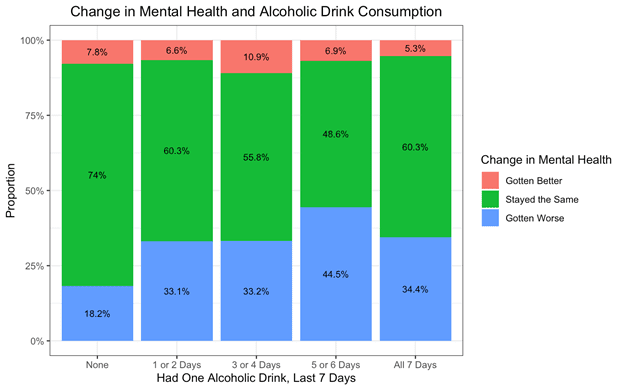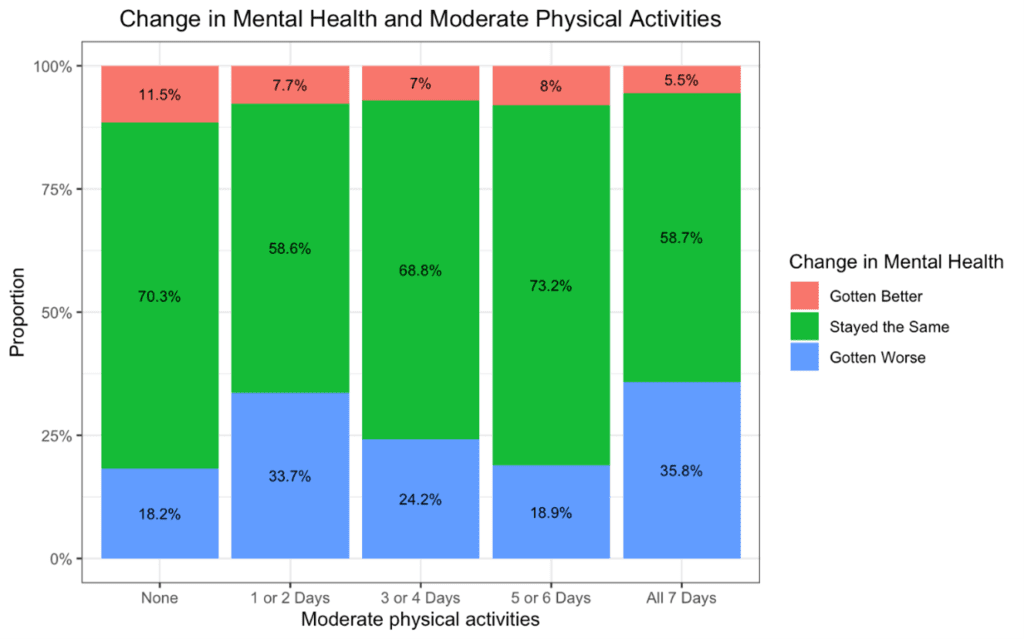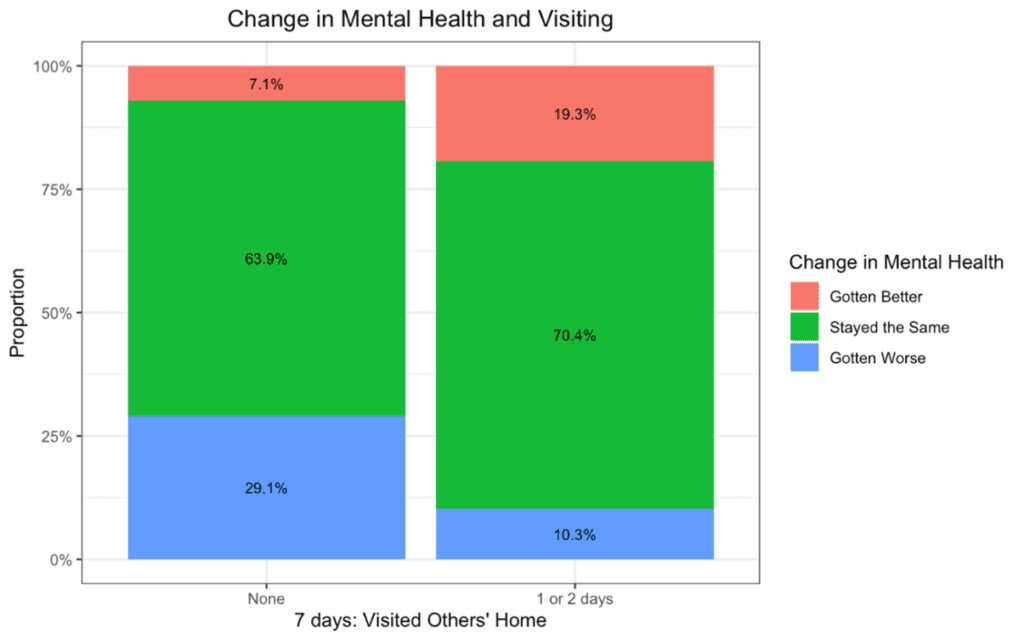In our sixth report drawn from the Living in Boston During COVID-19 survey, we have focused on the pandemic’s health impact among Bostonians. We documented declines in physical health and even more in mental health that residents attributed to the pandemic. At the same time, we found striking disparities in these adverse health effects between residents in relation to their overall health, their health behaviors, and their race and ethnicity, education and employment, and marital status. The patterning of these effects reveals how multiple aspects of residents’ backgrounds and current circumstances shaped their experience of the pandemic. In today’s data story, the second of three from this report, we focus on the association between health-related behaviors and adverse effects on mental health.
The percentage of those reporting their mental health had worsened since March rose by about fifteen percentage points among those who drank at all, compared to those who did not drink as much as one drink in the last seven days. The likelihood of adverse mental health effects did not increase regularly as residents drank more.

Those who exercised more often were not less likely to report that their mental health had declined (although this association occurred with improved physical health). Findings were similar in relation to frequency of “vigorous” physical activities.

Although avoiding visiting other people in their homes was one of the pandemic social distancing guidelines, those who reported having engaged in this behavior were less likely to report that their mental health had declined

In summary, drinking was somewhat associated with the likelihood of having experienced worsening mental health since the start of the pandemic in Boston, but exercising was not. However, visiting with others seemed to help protect mental health. We do not know if the frequency of drinking and visiting with others were responses to changes that had already occurred in mental health after March 2020 or instead helped to shape the course of the pandemic’s mental health effects. Our findings do suggest that these and other behaviors should be considered in relation to understanding and helping to minimize the pandemic’s adverse mental health effects.
The content of this post is drawn from the Living in Boston during COVID-19 survey conducted by the Center for Survey Research at UMass Boston and the Boston Area Research Initiative at Northeastern University, in collaboration with the Boston Public Health Commission. It was funded by the National Science Foundation’s Human-Environment and Geographical Sciences (HEGS) program through a grant for rapid-response research (RAPID; Award #2032384). The results presented here were part of a longer report on “Physical and Mental Health.”

